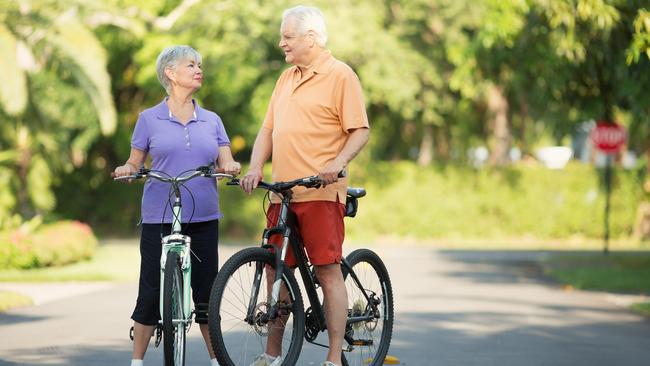Millennial greed and entitlement knows no limit
Blaming Baby Boomers for all of their woes might feel good for young Australians, but the reality is Millenials should be thanking those that came before them, not stamping their feet and wanting more, writes Renee Viellaris.

Rendezview
Don't miss out on the headlines from Rendezview. Followed categories will be added to My News.
Whingeing Millennials do not realise how lucky they are and instead of berating Baby Boomers for “being greedy” and “ruining the planet” they should be paying tribute to those before them for making their life a walk in the park.
There has never been a more ungrateful generation who have forgotten or are too ignorant to understand the sacrifices, the hard work and the social justices they have today because of their parents, grandparents and great grandparents.
MORE FROM RENEE VIELLARIS: China will be Morrison’s greatest leadership test
The Afterpay generation have an “I want it now” mentality.
It wasn’t until 1974 that credit cards were allowed into Australia. That means households saved for what they needed and only spent what money they had. It meant families had to be frugal and taught them the valuable lesson of buying only what they could afford.
They couldn’t Uber Eats dinner in if they (generally women) were too tired to cook.
Millennials have never had to learn the art of saving the same way previous generations have, and it has contributed to their foot stamping when they can’t get what they want.
There have been incredible social justice gains over the past 100 years and this is not just good for society, but it has a positive impact on the economy as well.
It has never been easier to be a woman, indigenous, disabled, poor or ageing. It is not because of a few protests undertaken today by a few under 30s, this is because of decades of hard-fought wins by generations before.
Younger generations take for granted — or are unaware — of the tough policy and political battles — including environmental fights — that have made their lives so much easier.
In the late 1800s, some women could finally own property and it wasn’t until 1902 that Australian women could vote in federal elections.

Female trail blazers like Edith Cowan, Emma Miller and Mary Lee pushed to ensure women won their democratic right to vote in federal elections (however, it wasn’t until 1943 that women were elected to federal parliament).
In 1928 the first Australian International Women’s Day rally in Sydney saw women take to the streets to demand equal pay for equal work and a basic wage for the unemployed.
It seems unimaginable that women would have to give up their job for a man once they got married — that continued into the 1960s.
In 1962, the Commonwealth Electoral Act provided that indigenous Australians should have the right to enrol and vote at federal elections.
Not long after, a couple of white women chained themselves in a Brisbane public bar to protest the fact they were banned from drinking in there.
RELATED: The micro-generation that’s missing out
Women’s rights were not codified in Australia’s laws until 1984, when the Sex Discrimination Act was enacted.
The National Disability Insurance Scheme is now operational to help people with a disability.
In 2008, the then Rudd government’s same-sex law reform package passed parliament and gay marriage was legalised in December 2017 by the then Turnbull government.
It is true younger Australians are finding it harder to buy their first home — partly because of low wage growth and income-to-house price ratios have increased from five times the median income in the 1990s to seven times today in some capital cities.
Some parents tell their kids how hard it was when Australia’s official cash rate was 17.5 per cent in the 1990s — many families could not afford repayments and lost their homes.
The fact is Australian homeownership has been falling for three decades and it is more complex than the “greedy” Baby Boomers with their franking credits and benefits from their free education.
Home ownership also goes to the psychology of the new generation. Many don’t want to move to the boondocks or outer city ring because it is not convenient. They want their first choice of home today, whereby generations before were willing to buy what they could afford — it wasn’t an all or nothing proposition.

Nevertheless, the Morrison Government will now help home buyers save for a deposit.
Only a 5 per cent deposit will be needed because the Government will guarantee the additional amount needed to reach the 20 per cent. It means borrowers will not have to pay mortgage insurance.
It is also ridiculous for Millennials to blame those before them for the effects of climate change. Australia’s prosperity is in part built off the back of resources. As a country, Australia is moving to decarbonise, but it cannot be done all at once because it will kill the economy — and it is ironic there are calls for a more aggressive push to decarbonise given there’s concern about the lack of full-time jobs and insecure work.
MORE FROM RENEE VIELLARIS: Time for Morrison’s policy agenda to get moving
While it is true Australia has had a lost decade on energy and climate policy, innovation and technology will not stand still.
Methane from burps and farts is a greenhouse gas 28 times more powerful than carbon dioxide, the CSIRO says.
About 10 per cent of Australia’s greenhouse gas emissions comes from livestock burping and farting.
Now University of the Sunshine Coast researchers believe a pink seaweed added to cow feed could completely eliminate their methane production. There will be more of this, especially as renewables get better at storing energy and technology makes fossil fuels cleaner.
In the coming decades or so, Australia will see the biggest intergenerational shift in wealth as Baby Boomers leave their earnings to their children and great grandchildren.
I wonder if Millennials will be complaining then?
Renee Viellaris is the national politics editor for the Courier-Mail.


